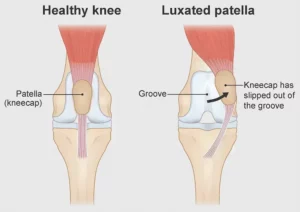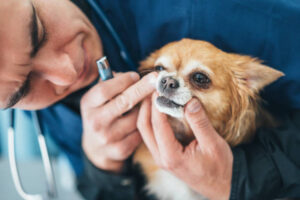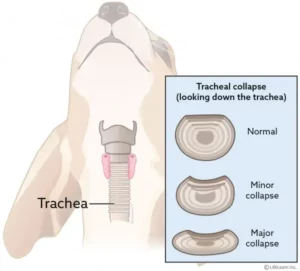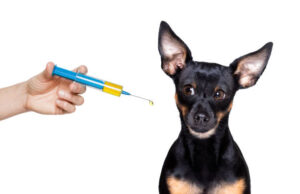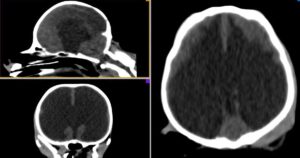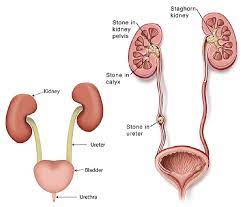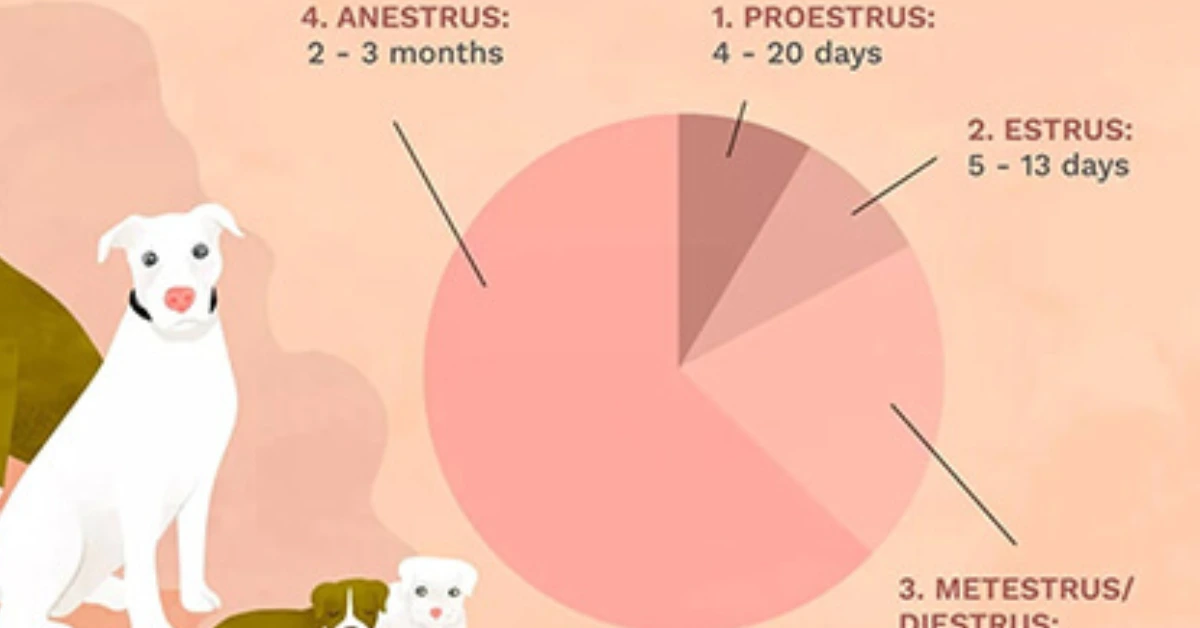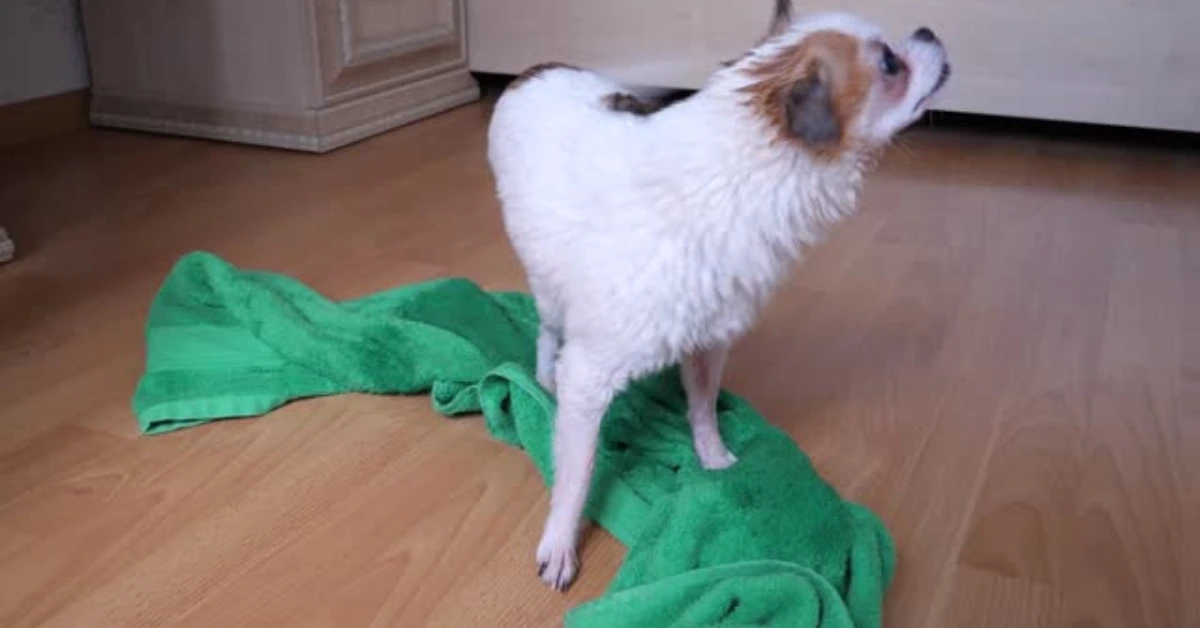If you own a Chihuahua or are thinking about obtaining one, you want to know everything there is to know about chihuahua common health issues.
To make sure your Chihuahua stays healthy, you need to know the facts and best practices regarding anything from frequent problems to learning more about life phases and preventive care.
Most common Chihuahua health problems
The most frequent health concerns that Chihuahuas encounter are hypoglycemia, liver shunts, patellar luxation, and dental disorders.
Advertisement
It’s critical to arrange routine veterinarian examinations to identify these problems early on and stop more serious consequences.
Patellar Luxation
This condition affects your Chihuahua and can cause discomfort, stiffness, and even limping. It is caused by the patella, the kneecap, slipping out of its natural place. It is essential to identify and treat luxating patella in Chihuahuas as soon as possible to avoid more harm and discomfort.
A comprehensive physical examination by your veterinarian will involve joint manipulation to assess the amount of looseness.
An MRI or other imaging tests can help for a more precise diagnosis. Treatment options could include anything from pain control to surgery, depending on how severe the disease is.
Chihuahua Teeth Issues
In the realm of Chihuahua health, dental issues are a real worry. Numerous dental problems, like as gum disease, overcrowding, and even tooth loss can affect Chihuahuas.
Regretfully, a lot of Chihuahua owners disregard the value of dental care and neglect to take preventative action to shield their dogs’ teeth. Bad breath and even excruciating tooth issues may result from this.
Prioritize your Chihuahua’s dental health by brushing their teeth regularly, arranging for frequent cleanings, and giving them dental chews or toys to aid in maintaining clean teeth.
How many teeth does a Chihuahua have is a question that many people frequently ask. You might be surprised to hear that a healthy adult Chihuahua should have forty-two teeth. Yes, as they become older, they have two whole sets of teeth, much like us.
YOU MA WANT TO READ: How to Maintain Your Chihuahua’s Teeth Healthy
Seizures
Chihuahuas that have seizures can show several symptoms, some of which are related to the trachea and can make the situation worse.
It is very important for a Chihuahua’s health that seizures are correctly diagnosed and treated. If you think your Chihuahua is having seizures, you should take them to the vet right away.
Collapsed Trachea
This disease happens when the cartilage rings that support the windpipe get weak, which makes the trachea narrow and fall apart. Sadly, most of the signs might not show up until the disease is very far along. Some common warning signs are trouble breathing, coughing, honking or choking sounds, and not being able to handle exercise.
Medical images, such as X-rays and bronchoscopy, are the best ways to tell if your Chihuahua’s trachea has collapsed. The condition is mostly treated without drugs, such as by controlling the dog’s weight, making changes to its surroundings, and using harnesses instead of collars. But in severe cases, medication and surgery may be thought of as possibilities.
YOU CAN READ MORE ABOUT: Tracheal Collapse in Chihuahuas: Symptoms, Causes , And Treatment
Hypoglycemia
When a Chihuahua’s blood sugar level drops too low, this is called hypoglycemia. It can show up in many ways, like being tired, shaking, confused, or even having seizures.
It could be due to worry or not getting enough food. As a treatment, a high-carb meal is usually given right away, and the dog’s blood sugar levels are closely watched.
Heart Issues
It is known that Chihuahuas can get heart problems like congestive heart failure, arterial hypertension, mitral valve disease, and heart murmur.
These health problems make it hard for the heart to pump blood properly, which can cause breathlessness, tiredness, and shortness of breath. Worrying about a Chihuahua’s heart problems is normal, but they can be controlled and treated with medicines, changes in lifestyle, and regular trips to the vet.
Diabetes
Chihuahuas are more likely to get diabetes, which can be caused by genetics, being overweight, or not eating well. As a caring pet owner, you should keep an eye out for signs like more urination and thirst, weight loss, and tiredness.
Early diagnosis is important for effective treatment, which usually includes taking medicine, making changes to your food, and keeping a close eye on your blood sugar levels.
Ear Issues
Many things, like allergies, parasites, and bacterial illnesses, can make Chihuahuas’ ears hurt. Scratching, moving the head, discharge, pain, and a bad smell are all common signs of these ear problems.
It is often necessary to have a veterinary exam to correctly diagnose the problem and figure out the best way to treat it.
YOU CAN READ: Chihuahua Ear Infections-Types, And Causes.
Hydrocephalus
Hydrocephalus, which means “water on the brain,” happens when the head fills up with too much cerebrospinal fluid, putting pressure on the brain. If a Chihuahua has hydrocephalus, it may have a swollen head, seizures, and trouble walking.
Even though hydrocephalus can’t be cured, catching it early and treating it can make your Chihuahua’s life a lot better. This could mean taking medicine to stop fluid from building up, having surgery to insert a shunt to change the flow of fluid, or even just regularly checking to make sure the situation doesn’t get worse.
Skin Issues
The skin on a Chihuahua is very sensitive and is often forgotten about when it comes to their health. Skin problems can show up in many ways, such as redness, itching, flaking, and hair loss.
People who own Chihuahuas should know that skin problems’ cause are often things like allergies, parasites, and bacterial illnesses.
A good diagnosis from a doctor is important for figuring out the best way to treat the problem. This could mean medicated shampoos, prescription drugs, or changes in the pet’s diet.
Among these problems, hair loss is one of the most important ones. Hair loss in Chihuahuas may not seem like a big deal, but it can be a sign of a much bigger problem. If you don’t treat it, it can lead to more health problems and even more serious skin diseases.
Back Problems
Inferior disc disease (IVDD) is a problem that many small-breed dogs, like Chihuahuas, have. If you don’t treat this problem, the spinal discs can bulge or burst, which can cause a lot of pain, trouble walking, or even paralysis.
Some signs are yelling or crying out in pain, having stiff or weak limbs, and not wanting to move or jump. We recommend that you take your Chihuahua to the vet right away if you think it has IVDD or any other back problem.
Depending on how bad the condition is, treatment choices may include medicine, surgery, or physical therapy.
FOR MORE INFO YOU CAN CHECK OUT: IVDD: Chihuahuas’ Most Common Cause of Back Problems
Molera- Soft Spot
In this case, the Chihuahua’s soft spot on its head grows inwards instead of outwards like a normal soft spot would. This could give your Chihuahua headaches, seizures, or problems with its brain.
Even though no one knows for sure what causes this disease, it is thought to be genetic. When your Chihuahua seems to have the reverse soft spot, it’s important to take them to the vet for treatment, just like when they have any other health problem. Your doctor may suggest surgery or medicine to help with the symptoms.
Reverse Sneezing
Chihuahuas often have health problems that cause them to sneeze backward. Signs are, quick breathing in and out, and pet owners may find it scary. Even though it’s not usually a problem, it’s still good to know what it is, what causes it, and how to treat it.
Chihuahuas that reverse sneeze often snort, wheeze, and gag after they breathe in. It is often brought on by allergies, allergens, or problems with the structure of the nose and throat. Some ways to treat the Chihuahua are to massage its throat and help it stay quiet. If the signs don’t go away, you should take your pet to the vet right away.
Kidney Issues
When it comes to Chihuahua health, kidney issues can be very bad. The best way to treat something is to find it early, so owners should know what the signs are.
Some of these are having to urinate and thirst more, throwing up, feeling tired, and losing appetite. Genetics and some drugs can be causes of kidney problems, but with the right care and attention, these problems can often be controlled by taking medicine and making changes to how you live your life.
Eye Issues
If you have a Chihuahua, you should carefully watch your dog for any signs in his eyes, like redness, tears, or pain. If any of these things happen to your Chihuahua, you need to take them to the vet right away.
Red eyes
Chihuahuas with red eyes may have several health problems, such as allergies, illnesses, or injuries. If you see that your Chihuahua’s eyes are red, tearing a lot, or swelling, you should take them to the vet right away to get a good diagnosis.
Cataracts
Cataracts in Chihuahuas happen when the lens of the eye gets cloudy, which can make it hard to see or even go blind. Symptoms like cloudy eyes, trouble seeing, and not wanting to go into new places should be watched out for.
If you think your Chihuahua has cataracts, you should take them to the vet right away to get a good diagnosis. There are different ways to treat cataracts based on how bad they are, and in some cases, surgery may be needed.
Glaucoma
A dangerous eye disease called glaucoma can hurt, make it hard to see, or even go away completely if it is not treated. When a Chihuahua has glaucoma, its eyes may become cloudy, red, and teary all the time.
If any of these things happen, you need to take your Chihuahua to the vet right away to get a good diagnosis. The vet can treat Glaucoma in Chihuahuas in some ways, based on how bad the condition is. Usually, your dog will need medicine and/or surgery.
Cherry eye
Cherry-eye is a bump that forms in the inner corner of the eye from a gland. Chihuahuas can get cherry eye, which looks like redness, swelling, and a pink or red bump in the corner of the eye.
It is very important to get your Chihuahua to the vet right away if you think it has a cherry eye. Usually, a physical check and imaging tests are a must to make a diagnosis. Medications that lower inflammation, include surgery to remove the gland. A mix of the two are all possible ways to treat the condition.
Conjunctivitis
Chihuahuas with conjunctivitis may have redness, swelling, discharge, and scratching at the eye all the time. To make sure that your Chihuahua doesn’t have cataracts, you should take them to the vet for a full checkup. You can use them as Treatments Topical or oral medicines, anti-inflammatory drugs, and warm compresses.
People know Chihuahuas by their eyes that stick out funnily. This can be cute, but it’s important to think about the health risks that may come with it.
If you notice any changes in your Chihuahua’s eyes, it’s important to keep a close eye on their health. Bulging eyes can sometimes be a sign of a deeper health problem. In addition, it’s important to note, though, that this trait is usually harmless and doesn’t lead to any big health issues.
Should your Chihuahua scratch a lot, it could mean a health problem is going on underneath. Eye infections, allergies, and even tooth problems are all things that could be to blame. To get a correct diagnosis, it’s important to get help from a professional veterinarian.
Last Word
To take good care of and maintain this small breed. You need to know about the different health problems they can have. Just remember that chihuahuas are super healthy dogs that live an average of 12 to 20 years.
YOU MAY ALSO LIKE:
10 Common Signs your chihuahua is Sick and Tips for a Happy Healthy chihuahua
why do some chihuahuas have big eyes?
Advertisement


